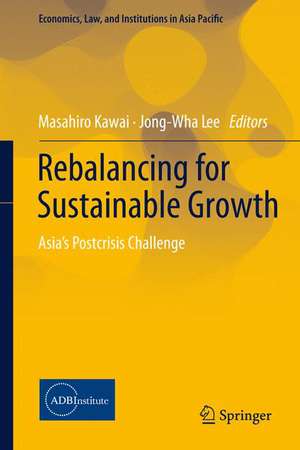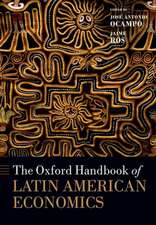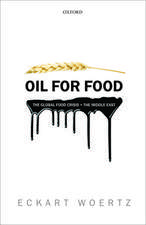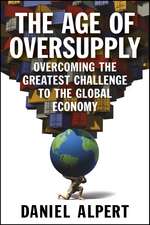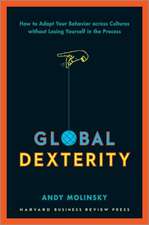Rebalancing for Sustainable Growth: Asia’s Postcrisis Challenge: Economics, Law, and Institutions in Asia Pacific
Editat de Masahiro Kawai, Jong-Wha Leeen Limba Engleză Hardback – 18 mai 2015
Key recommendations to achieve these goals include measures to: deepen social protection to support social resilience; increase infrastructure investment to create a “seamless Asia”; enhance productivity in the services sector; establish a region-wide free trade agreement to encourage intraregional trade in goods and services and investment through economies of scale and dynamic efficiency of a larger market; promote a shift to a low-carbon society and support green growth; and deepen and integrate financial markets to facilitate the recycling of Asia’s high savings for investment within the region.
| Toate formatele și edițiile | Preț | Express |
|---|---|---|
| Paperback (1) | 387.38 lei 43-57 zile | |
| Springer – 29 oct 2016 | 387.38 lei 43-57 zile | |
| Hardback (1) | 394.87 lei 43-57 zile | |
| Springer – 18 mai 2015 | 394.87 lei 43-57 zile |
Din seria Economics, Law, and Institutions in Asia Pacific
-
 Preț: 282.94 lei
Preț: 282.94 lei - 18%
 Preț: 1134.24 lei
Preț: 1134.24 lei - 15%
 Preț: 699.77 lei
Preț: 699.77 lei - 18%
 Preț: 1011.14 lei
Preț: 1011.14 lei - 18%
 Preț: 1402.55 lei
Preț: 1402.55 lei - 18%
 Preț: 1397.82 lei
Preț: 1397.82 lei - 18%
 Preț: 728.43 lei
Preț: 728.43 lei - 18%
 Preț: 782.42 lei
Preț: 782.42 lei - 18%
 Preț: 779.08 lei
Preț: 779.08 lei -
 Preț: 423.47 lei
Preț: 423.47 lei -
 Preț: 313.82 lei
Preț: 313.82 lei - 18%
 Preț: 778.45 lei
Preț: 778.45 lei -
 Preț: 427.71 lei
Preț: 427.71 lei - 18%
 Preț: 722.26 lei
Preț: 722.26 lei - 18%
 Preț: 725.43 lei
Preț: 725.43 lei - 18%
 Preț: 1110.24 lei
Preț: 1110.24 lei - 15%
 Preț: 698.15 lei
Preț: 698.15 lei - 15%
 Preț: 699.59 lei
Preț: 699.59 lei - 18%
 Preț: 730.79 lei
Preț: 730.79 lei - 18%
 Preț: 1001.50 lei
Preț: 1001.50 lei - 18%
 Preț: 950.21 lei
Preț: 950.21 lei
Preț: 394.87 lei
Nou
Puncte Express: 592
Preț estimativ în valută:
75.56€ • 79.09$ • 62.89£
75.56€ • 79.09$ • 62.89£
Carte tipărită la comandă
Livrare economică 31 martie-14 aprilie
Preluare comenzi: 021 569.72.76
Specificații
ISBN-13: 9784431553205
ISBN-10: 4431553207
Pagini: 267
Ilustrații: XV, 266 p. 24 illus., 8 illus. in color.
Dimensiuni: 155 x 235 x 23 mm
Greutate: 0.58 kg
Ediția:2015
Editura: Springer
Colecția Springer
Seria Economics, Law, and Institutions in Asia Pacific
Locul publicării:Tokyo, Japan
ISBN-10: 4431553207
Pagini: 267
Ilustrații: XV, 266 p. 24 illus., 8 illus. in color.
Dimensiuni: 155 x 235 x 23 mm
Greutate: 0.58 kg
Ediția:2015
Editura: Springer
Colecția Springer
Seria Economics, Law, and Institutions in Asia Pacific
Locul publicării:Tokyo, Japan
Public țintă
ResearchCuprins
1 Introduction and Overview (Masahiro Kawai and Jong-Wha Lee).- 2 Crisis Impacts (Yung Chul Park).- 3 Improving Macroeconomic Stability (Masahiro Kawai and Shinji Takagi).- 4 Rebalancing production (Willem Thorbecke, Biswa Nath Bhattacharyay, Hank Lim, Gloria Pasadilla, and Venkatachalam Anbumozhi).- 5 Enhancing Social Protection (Gloria O. Pasadilla and Bart W. Édes).- 6 Deepening the Financial System (David G. Mayes, Peter J. Morgan, and Hank Lim).- 7 Forging Regional Cooperation (Chalongphob Sussangkarn).- 8 Beyond the Crisis: Toward Balanced and Sustainable Growth (Masahiro Kawai and Jong-Wha Lee).
Notă biografică
Editors
Masahiro Kawai is a project professor, Graduate School of Public Policy, University of Tokyo. Previously, he was dean and CEO of ADBI from 2007 through 2014 after serving as head of ADB’s Office of Regional Economic Integration. He was formerly a professor of economics at the University of Tokyo. He also served as deputy vice minister of finance for international affairs of Japan’s Ministry of Finance and chief economist for the World Bank’s East Asia and the Pacific region. He was a consultant at the Board of Governors of the Federal Reserve System and the International Monetary Fund and special research advisor at the Institute of Fiscal and Monetary Policy in Japan’s Ministry of Finance. He earned his PhD in economics from Stanford University.
Jong-Wha Lee is a professor of Economics at Korea University, Seoul, Republic of Korea. Previously he was ADB’s Chief Economist and the chief spokesperson on economic forecasts and trends, oversaw the Economics and Research Department and was also head of ADB’s Office of Regional Economic Integration from 2007 to 2009. He has over 20 years of professional experience in economics and academia, and has published numerous books and journal articles in English and Korean, especially on topics relating to human capital, growth, financial crisis, and economic integration. He obtained his PhD and master’s degree in economics from Harvard University, and master’s and bachelor’s degrees in economics from Korea University.
Masahiro Kawai is a project professor, Graduate School of Public Policy, University of Tokyo. Previously, he was dean and CEO of ADBI from 2007 through 2014 after serving as head of ADB’s Office of Regional Economic Integration. He was formerly a professor of economics at the University of Tokyo. He also served as deputy vice minister of finance for international affairs of Japan’s Ministry of Finance and chief economist for the World Bank’s East Asia and the Pacific region. He was a consultant at the Board of Governors of the Federal Reserve System and the International Monetary Fund and special research advisor at the Institute of Fiscal and Monetary Policy in Japan’s Ministry of Finance. He earned his PhD in economics from Stanford University.
Jong-Wha Lee is a professor of Economics at Korea University, Seoul, Republic of Korea. Previously he was ADB’s Chief Economist and the chief spokesperson on economic forecasts and trends, oversaw the Economics and Research Department and was also head of ADB’s Office of Regional Economic Integration from 2007 to 2009. He has over 20 years of professional experience in economics and academia, and has published numerous books and journal articles in English and Korean, especially on topics relating to human capital, growth, financial crisis, and economic integration. He obtained his PhD and master’s degree in economics from Harvard University, and master’s and bachelor’s degrees in economics from Korea University.
Textul de pe ultima copertă
The Asian model of export-led growth served it well in the post-war period, but prolonged sluggish growth of the developed economies following the global financial crisis, together with growing inequality and rising environmental problems, point to the need for a new growth model. The purpose of this book is to describe the challenges facing Asian economies in the post-global financial crisis environment and to identify structural issues and policies that can help guide Asian policymakers to expand the growth potential of domestic and regional demand in coming years, and thereby create a basis for balanced, sustainable, and inclusive long-term growth. These issues and policies span a variety of dimensions, including macroeconomic policy (monetary, fiscal, and foreign currency management), real sector issues (trade and industrial structure), infrastructure development, labor market and social policy, financial sector reform and regulation, and regional cooperation and architecture.
Key recommendations to achieve these goals include measures to: deepen social protection to support social resilience; increase infrastructure investment to create a “seamless Asia”; enhance productivity in the services sector; establish a region-wide free trade agreement to encourage intraregional trade in goods and services and investment through economies of scale and dynamic efficiency of a larger market; promote a shift to a low-carbon society and support green growth; and deepen and integrate financial markets to facilitate the recycling of Asia’s high savings for investment within the region.
Key recommendations to achieve these goals include measures to: deepen social protection to support social resilience; increase infrastructure investment to create a “seamless Asia”; enhance productivity in the services sector; establish a region-wide free trade agreement to encourage intraregional trade in goods and services and investment through economies of scale and dynamic efficiency of a larger market; promote a shift to a low-carbon society and support green growth; and deepen and integrate financial markets to facilitate the recycling of Asia’s high savings for investment within the region.
Caracteristici
Provides broad-ranging and practical policy prescriptions for rebalancing growth in Asia toward a more self-sustaining pattern less dependent on exports to developed economies Covers a variety of timely topics, including macroeconomic stability, industrial structure adjustment, enhancement of social protection, financial stability, environmental protection and green growth, and regional cooperation Highlights the collective research efforts of the ADBI, ADB and Asian think tanks Includes supplementary material: sn.pub/extras
